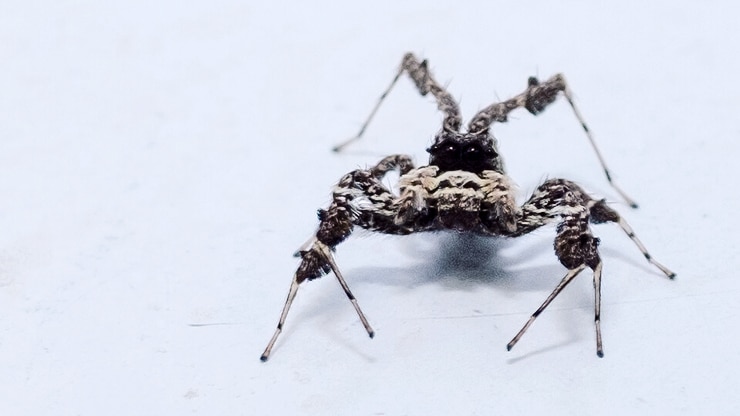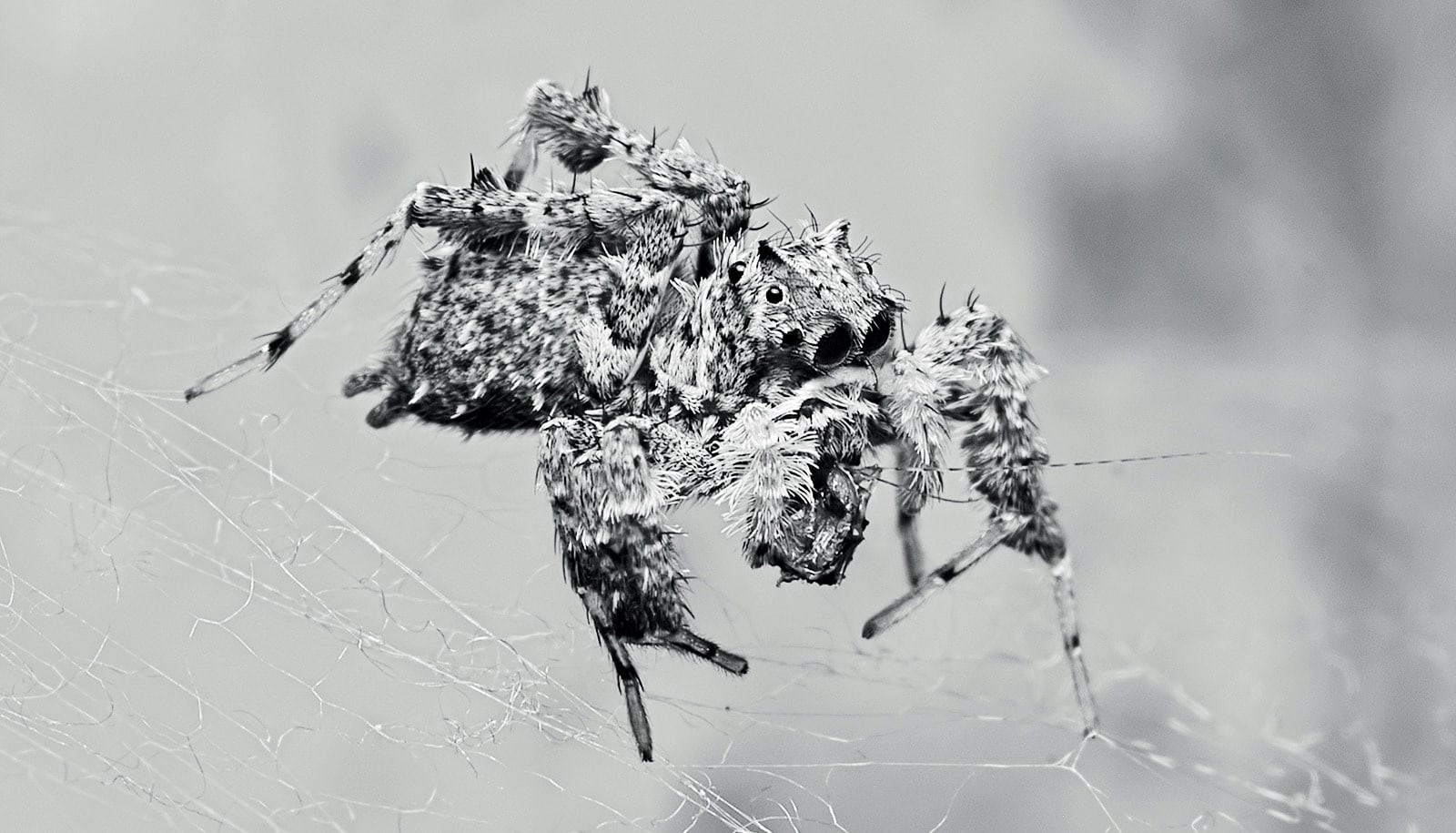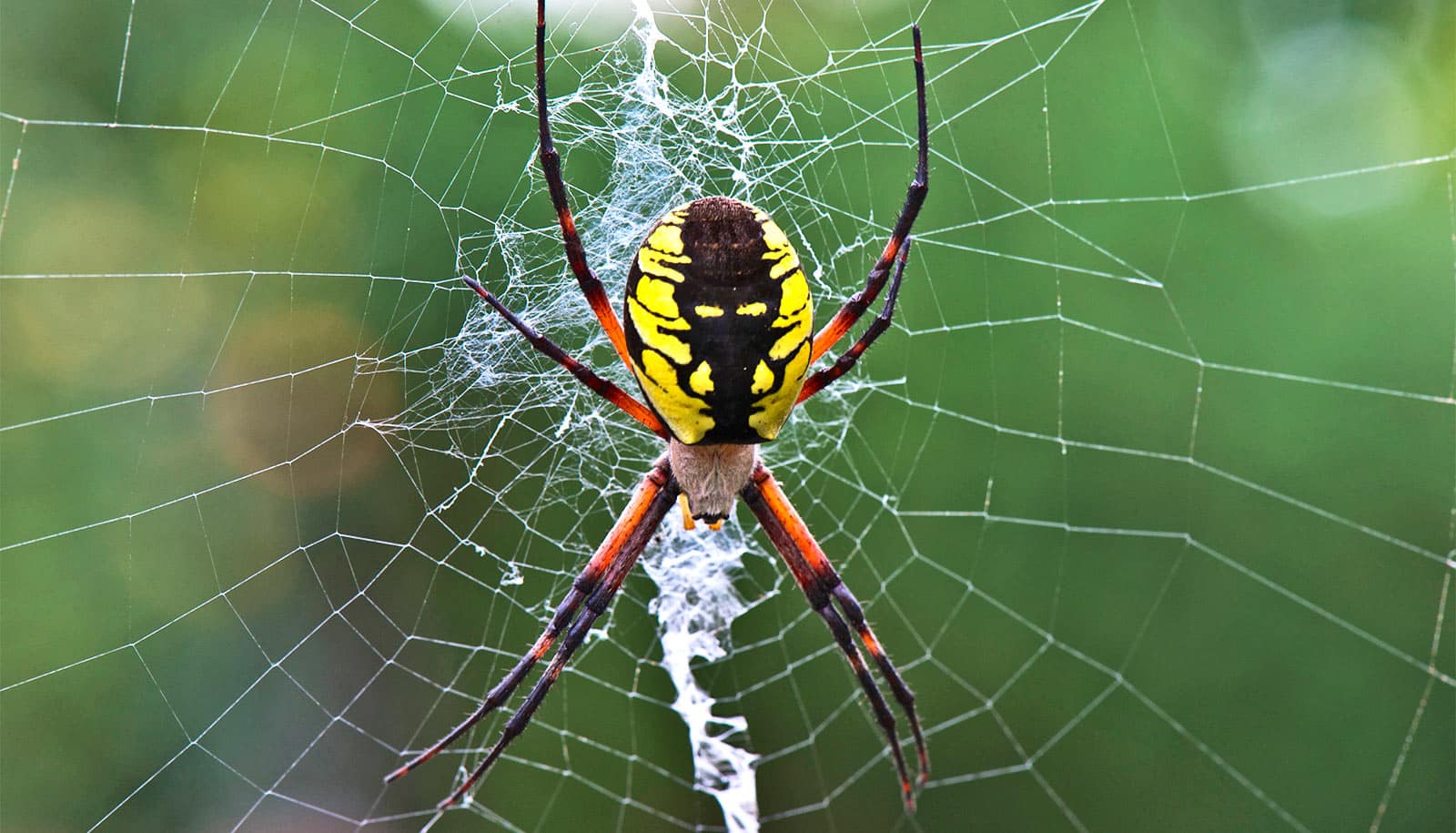Researchers have discovered that spiders’ personalities play a role in both their decision-making and hunting styles.
Researchers conducted two studies using Portia labiate, a type of jumping spider. The biology and behavior of these spiders are well-studied, says Li Daiqin, an associate professor in the biological sciences department at the National University of Singapore.

“They have a high level of learning behavior among invertebrates and are considered to have a very high cognitive ability,” he explains. However, their personalities remain unexplored.
The first study, which appears in Behavioral Ecology, focuses on how personality affects the speed and accuracy of a decision in invertebrates. Decision-making typically involves a speed-accuracy trade off, meaning that a quick decision would result in a less accurate choice. The research team wanted to investigate if the same trade-off held true for spiders, and if their personalities determine their decisions.
The researchers first sorted the spiders between two personality types—aggressive and docile. Each spider had a choice between two preferred prey items—one large, one small. “The big prey has a higher quality but they are more dangerous; the small prey does not have such a good quality but is safer,” doctoral student Chang Chia-chen says. The more accurate choice was denoted to be the larger prey as it would have a higher pay-off.
Results of the study show that more aggressive spiders made decisions faster, by about three to four times, but without a cost to accuracy. All the spiders chose the larger prey.
“The outcome is rather surprising, as our team had initially thought that spiders that make quick decisions are more likely to make the wrong choices, similar to humans. This new knowledge provides us with a better understanding of ecological processes like foraging and predator-prey interactions in the animal kingdom,” Li elaborates.
The second study, published earlier this year in Scientific Reports, looked at how personalities affect the foraging success of a predator. Two species of spiders were examined given its predator-prey pairing—the Portia labiate, and its common prey the Cosmophasis umbratica, which is another species of jumping spider.
Watch this spider pretend to be an ant
The researchers again identified the aggressive and docile Portia labiate spiders, as well as determined the behavioral predictability of the Cosmophasis umbratica spiders, by testing their reactions to a mirror and a mock predator respectively.
Different permutations of predator-prey pairs—about 70 in all, varying the behavioral predictabilities and personalities of each—were put together to determine the foraging performance of the predator. This was gauged by looking at the number of attempts the predator needed to successfully capture the prey.
“The results showed that aggressive predators fared better when catching a prey with unpredictable behavior while docile predators performed much better when hunting a prey with predictable behavior,” Chia-chen shares.
Explaining the significance of the two studies, Li says, “Understanding personalities of spiders will shed light on how an individual animal with a particular behavioral type can improve its survivorship and reproduction.” This in turn could have implications for evolutionary theories, providing a better understanding of the nature and ecology, he adds.
The study and management of animal personalities could also play a role in conservation, invasion biology, and climate change.
“Some animals that are more aggressive might be less likely to escape from danger quickly. This would make it easy for poachers to kill them. More aggressive individuals are also more likely to capture prey items that they had not encountered before when they invade new environments and could also be more responsive to climate change,” he suggests.
Jumping spiders can hear surprisingly well
The future will see the research team delving deeper into the personalities of spiders, studying the gene profiles of the spiders to identify the genes responsible for their personalities. They are also working on a study that expanded on the impact of personality on spiders’ decision-making, investigating their reactions to tasks of varying difficulties.
Source: National University of Singapore



